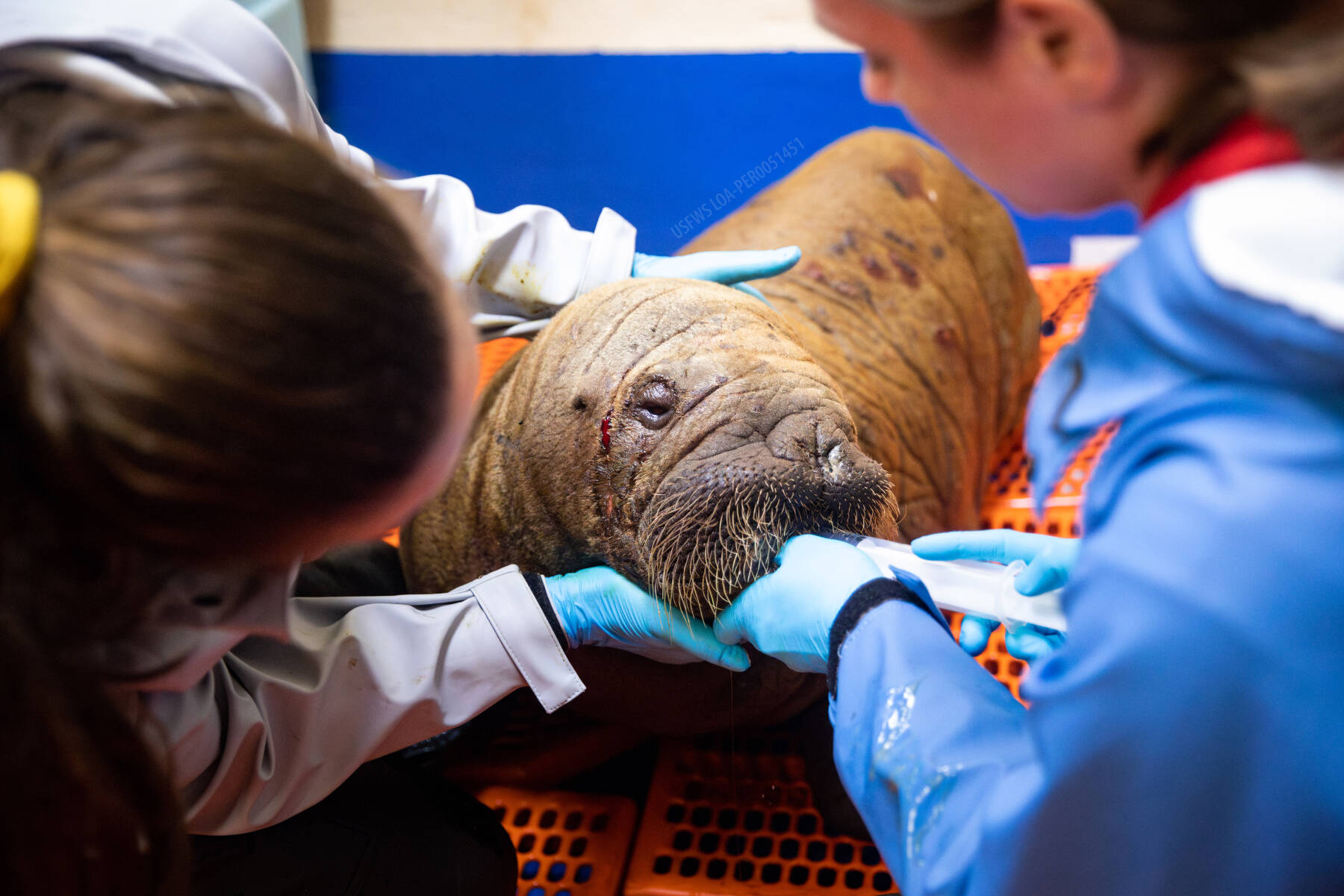The Alaska SeaLife Center admitted a “rare” patient on Monday, July 22 – an orphaned Pacific walrus calf.
The calf is a female rescued from Utqiagvik, according to a July 25 press release. The SeaLife Center’s Wildlife Response Department has only cared for 11 total walruses, and just one other female, since the center opened in 1998.
“This patient follows another walrus admitted just last year, which gained national attention but sadly passed away due to irreversible health issues,” the release states.
The female calf was first observed alone on the beaches of Utqiagvik. According to the release, reports from subsistence hunters noted that a walrus herd had recently left the area, suggesting the calf had been left on its own.
SeaLife Center staff mobilized to assist in transport and prepared to receive the patient after receiving approval from the U.S. Fish and Wildlife Service. Transporting the calf from Utqiagvik was “no simple task,” the release said. Sealife Center partners provided overnight care and fluids and ensured the calf remained stable on its 24-hour journey.
The 165-pound calf – estimated to be only a couple of weeks old – arrived with her transport team in Anchorage on Monday night, July 22, where she was then brought under the care of the ASLC Wildlife Response and veterinary teams.
During their initial admit exam, the team noted that the calf was malnourished and dehydrated, but alert. They wrapped up administering emergency fluids and stabilizing treatments around 1 a.m. on Tuesday, July 23.
The release notes that care for the calf will entail “demanding” days ahead.
SeaLife Center veterinary technician Jessica Davis said that at least two people will be on every shift, either staying with the walrus calf or prepping food, cleaning the environment and taking care of the center’s other rehab patients.
The care regimen for Pacific walruses is more hands-on than for many other marine mammals because calves are highly social and seek comfort through physical contact with their mothers. Center staff will act as surrogates, sitting with the calf around the clock — which also means that the calf will “habituate to human care and will not be a candidate for release back into the wild.”
“Walruses are so reliant on their moms for the first two years of life, they’re likely not going to survive without her. This calf would not have survived much longer without her mom,” Wildlife Response Animal Care Specialist Halley Werner said. “She now has a second chance at life in human care, and she’ll help bring awareness to her species while receiving incredible care.”
For more information on ASLC and updates on the wildlife response patients, visit www.facebook.com/AlaskaSeaLifeCenter/.
The Alaska SeaLife Center also reminds the community — before approaching an injured or stranded marine animal in Alaska, call the 24-hour Stranded Marine Animal Hotline at 1-888-774-SEAL (7325).


